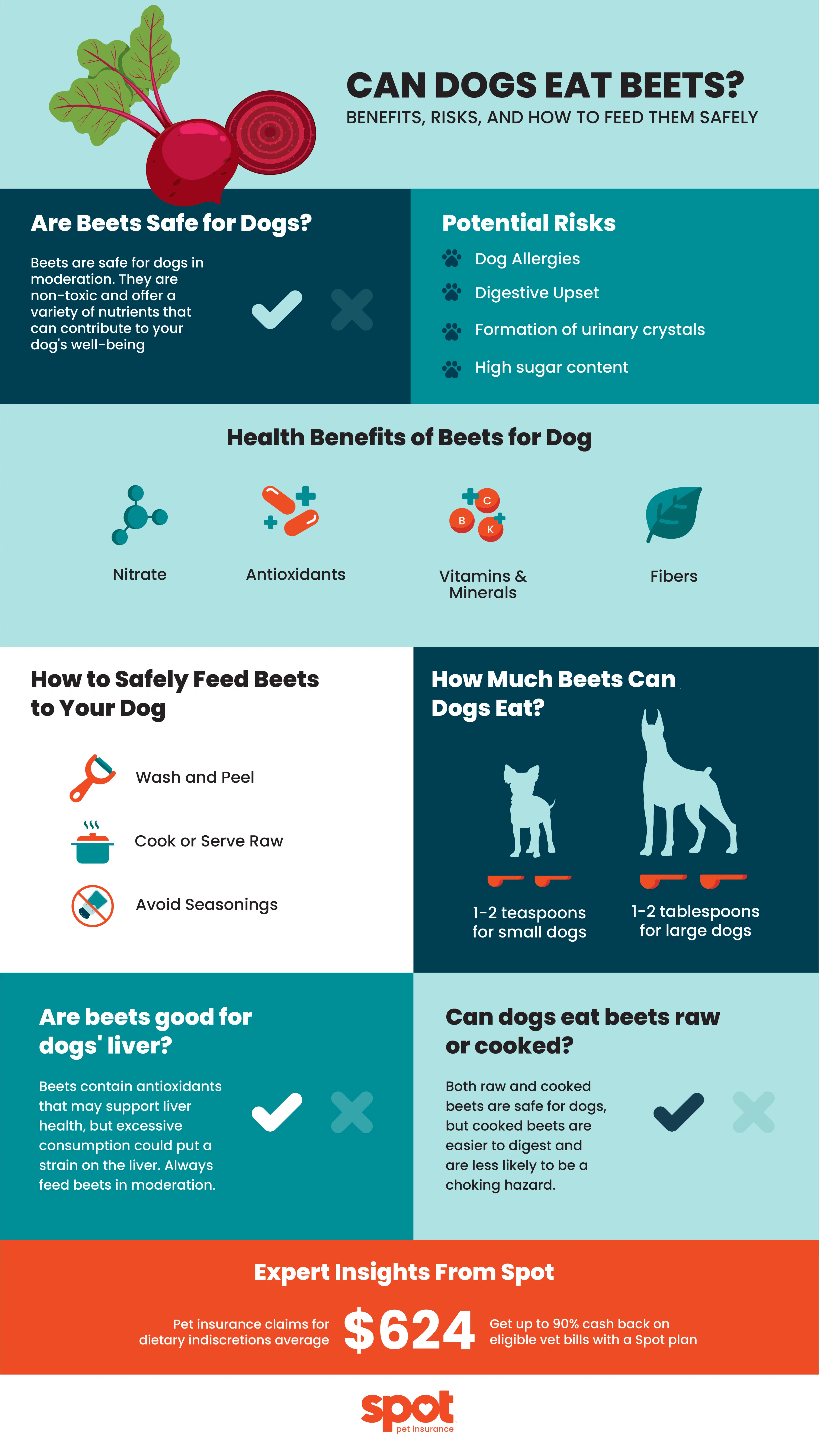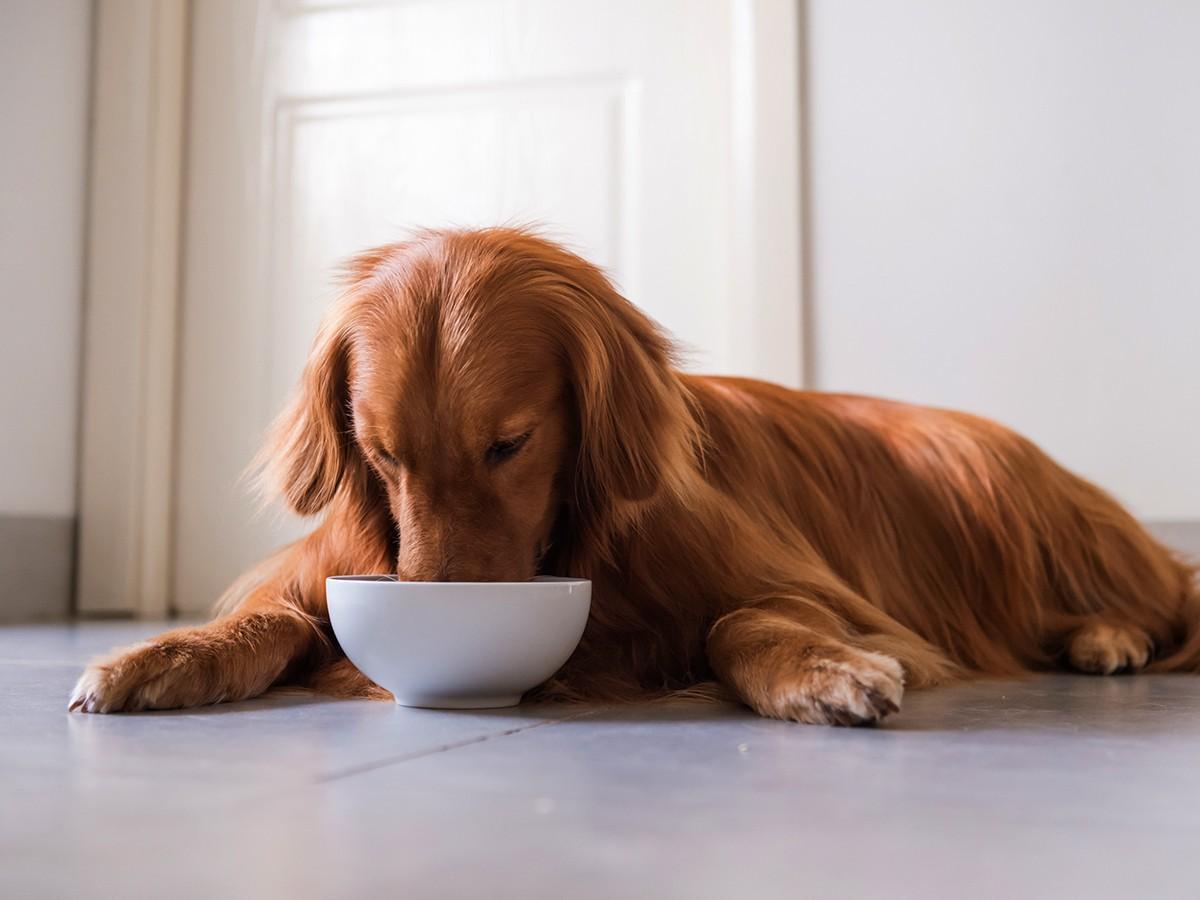Adding colorful vegetables to your dog's diet can be a great way to boost their nutrition and overall health. Beets, with their vibrant hue and earthy flavor, are a popular choice among pet owners. But are beets good for dogs? Can dogs eat beets safely? Let's explore the benefits, risks, and best practices for feeding beets to your pet.
Are Beets Safe for Dogs?
The good news is that beets are safe for dogs in moderation. They are non-toxic and offer a variety of nutrients that can contribute to your dog's well-being. However, there are some potential risks and precautions to keep in mind.
Potential Risks and Precautions
Dog Allergies: While rare, some dogs may be allergic to beets. Introduce beets slowly and in small quantities to monitor for any adverse reactions like vomiting, diarrhea, or excessive itching.
Digestive Upset: Beets are high in fiber, which can cause gas, bloating, or diarrhea if your dog consumes too much. Start with small portions and gradually increase the amount as your dog adjusts.
Oxalates: Beets contain oxalates, which can contribute to the formation of urinary crystals or stones in predisposed dogs. If your dog has a history of urinary problems, consult your veterinarian before feeding them beets2.
Sugar Content: Beets have a naturally high sugar content. While this is not a major concern in moderation, excessive consumption could contribute to weight gain or exacerbate conditions like diabetes.
Health Benefits of Beets for Dogs
Beets offer a variety of nutritional benefits for dogs:
Vitamins and Minerals: Beets are rich in essential vitamins and minerals, including vitamin C for immune support, folate for cell growth and development, manganese for bone health, and potassium for muscle function3.
Fiber: The high fiber content in beets promotes healthy digestion and regular bowel movements, which can be especially beneficial for dogs prone to constipation.
Antioxidants: Beets contain antioxidants like betalains, which help protect cells from damage and may have anti-inflammatory properties.
Nitrate: Beets are a natural source of nitrate, which can help improve blood flow and potentially enhance exercise performance.
How to Safely Feed Beets to Your Dog
Preparing Beets for Dogs
Wash and Peel: Thoroughly wash the beets to remove any dirt or debris. Peel the beets to remove the tough outer skin.
Cook or Serve Raw: You can feed beets to your dog either cooked or raw. Cooking (boiling, steaming, or roasting) can make beets easier to digest and less likely to cause choking. If feeding raw, grate or finely chop the beets into small pieces.
Avoid Seasonings: Do not add salt, butter, or other seasonings to the beets, as these can be harmful to dogs.
How Much Beets Can Dogs Eat?
The appropriate amount of beets for your dog depends on their size, age, and overall health. As a general guideline, start with a small amount (1-2 teaspoons for small dogs, 1-2 tablespoons for large dogs) and gradually increase as tolerated2. Beets should not make up more than 10% of your dog's daily caloric intake.

Can Dogs Eat Radishes?
Yes, dogs can eat radishes in moderation. Like beets, radishes are a good source of vitamins, minerals, and fiber. They are also low in calories and can be a healthy alternative to high-calorie dog treats. However, the same precautions apply as with beets: feed in moderation, prepare them properly, and monitor your dog for any adverse reactions.
Frequently Asked Questions About Beets and Dogs
How much beets can I give my dog? Start with a small amount (1-2 teaspoons for small dogs, 1-2 tablespoons for large dogs) and gradually increase as tolerated.
How to prepare beets for dogs? Wash, peel, and either cook (boil, steam, or roast) or finely chop/grate raw beets before feeding them to your dog.
Are beets good for dogs' liver? Beets contain antioxidants that may support liver health, but excessive consumption could put a strain on the liver. Always feed beets in moderation.
Can dogs eat beets raw or cooked? Both raw and cooked beets are safe for dogs, but cooked beets are easier to digest and are less likely to be a choking hazard.
Other Vegetables Dogs Can Eat
In addition to beets and radishes, many other vegetables are safe and healthy for dogs, including:
Expert Insights From Spot
As much as we love to share our favorite foods with our pets, it's important to remember that not all human foods are safe for dogs. Spot's internal data shows that pet insurance claims for dietary indiscretions average $642*, highlighting the importance of being cautious and doing your research before sharing snacks with your pet.
Key Takeaways
Beets can be a healthy and tasty treat for your dog when offered in moderation and prepared properly. Remember to introduce beets slowly, monitor your dog's reaction, and consult your veterinarian if you have any concerns. By incorporating beets into your dog's diet, you can provide them with additional nutrients and variety while keeping their tails wagging!

With 10 years of experience as a pet parent, I aim to empower pet owners with insights into pet insurance and maintaining their pet's well-being. I aspire to be a trusted source, combining knowledge with a commitment to the welfare of our beloved pets.
*Jan 2019 to April 2024 administrator claims data.
1. “Can Dogs Eat Beets? (2024 Guide).” Dog Food Genius, 18 Jan. 2022, www.dogfoodgenius.com/can-dogs-eat-beets/.
2. “Can Dogs Eat Beets?” Www.petmd.com, 1 Aug. 2023, www.petmd.com/dog/nutrition/can-dogs-eat-beets.
3. Can Dogs Eat Radishes? - HayFarmGuy. 29 July 2024, hayfarmguy.com/can-dogs-eat-radishes.
4. “Can Dogs Taste Beets? - Wag!” Wagwalking.com, wagwalking.com/sense/can-dogs-taste-beets, n.d.
The information presented in this article is for educational and informational purposes only and does not constitute or substitute for the advice of your veterinarian.












